|
Printables |
PowerPoints |
Online exercises |
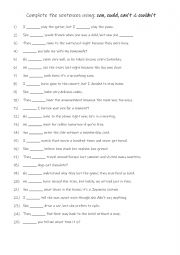
|
Ability, complete the sentences using: can, could, can�t & couldn�t
Students read the sentences and decide if present or past form is required. Then theycomplete the gap fills using: can, could, can�t & couldn�t. Answers on page 2
Level: elementary
Age: 10-100
Type:
Downloads: 109
|
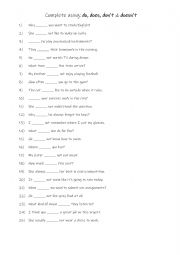
|
Complete using: do, does, don�t & doesn�t
Students read the sentences and question, then complete the gap fill using the correct form of do. Answers are on page 2
Level: elementary
Age: 10-100
Type:
Downloads: 102
|
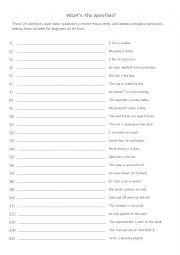
|
What�s the question?
The 25 sentences cover basic vocabulary, present tense verbs, and common everyday expressions, making them suitable for beginners at A1 level.
Students read the answers, then write a suitable question to get the given answer. Possible answers on page 2.
Level: elementary
Age: 10-100
Type: worksheet
Downloads: 131
|
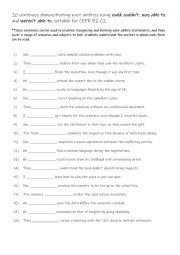
|
20 sentences demonstrating past abilities using could, could not, was able to, and were not able to, suitable for CEFR B2-C2
20 sentences demonstrating past abilities using could,could not, was able to, and were not able to, suitable for CEFR B2-C2
*These sentences can be used to practice recognising and forming past ability statements, and they cover a range of scenarios and subjects to help students understand the context in which each form can be used. Answers on pa...
Level: advanced
Age: 15-100
Type: worksheet
Downloads: 108
|
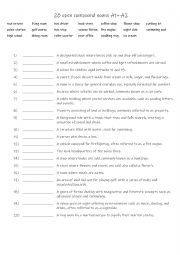
|
20 open compound nouns
Students read the decription and select the correct open compound noun in bold. To help students realise that compund nounds have different forms etc.Joined, hypenated and open. The worksheet is also suitable as a warmer / cooler or gap fill in suitable classes. Answers on page 2
Level: elementary
Age: 10-100
Type:
Downloads: 109
|
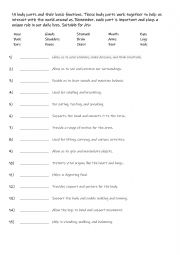
|
15 Body parts
15 body parts and their basic functions. These body parts work together to help us interact with the world around us. Students read the definition and select the correct missing word in bold.Suitable for A1+ Answers are on page 2
Level: elementary
Age: 10-100
Type:
Downloads: 122
|
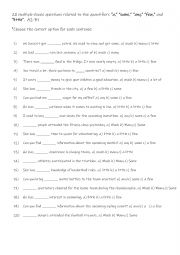
|
Quantifiers practise using a, some, any, few, and little.
20 multiple-choice questions related to the quantifiers a,some,any, few,and little. A2-B1.Answers on page 2
Level: elementary
Age: 10-100
Type: worksheet
Downloads: 106
|
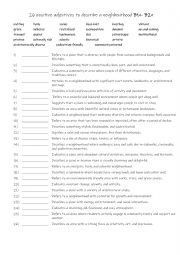
|
Positive adjectives to describe a neighbourhood B1+- B2+
26 positive adjectives to describe a neighbourhood B2-C1. Students read the definitons and choose from a list of adjectives in bold. Answers on page 2 After checking the answers, students in pairs or small groups use some of the adjectives to describe their neighbourhood.
Level: advanced
Age: 12-100
Type: worksheet
Downloads: 125
|
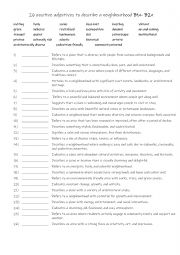
|
Negative adjectives to describe a neighbourhood B2-C1
19 negative adjectives to describe a neighbourhood B2-C1. Students read the definitons and choose from a list of adjectives in bold. Answers on page 2. After checking the answers, students in pairs or small groups use some of the adjectives to describe their neighbourhood.
Level: advanced
Age: 15-100
Type: worksheet
Downloads: 135
|
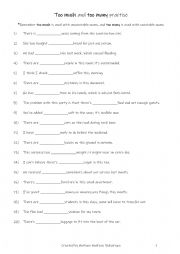
|
Too much and too many practise
Too much and too many practise
Students read the sentences and work out if the sentence needs to be completed with too much or too many.
*Remember too much is used with uncountable nouns, and too many is used with countable nouns
Level: elementary
Age: 10-100
Type:
Downloads: 106
|
|
|
|
|












